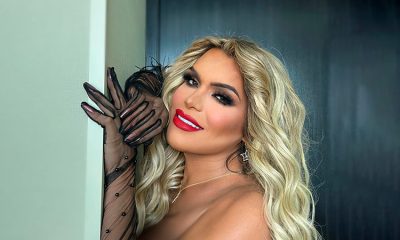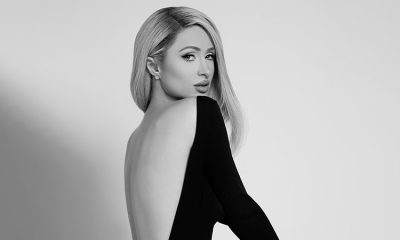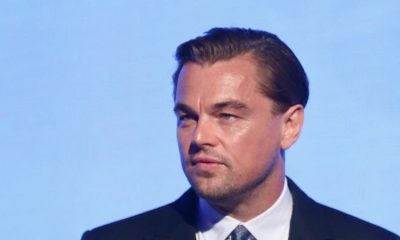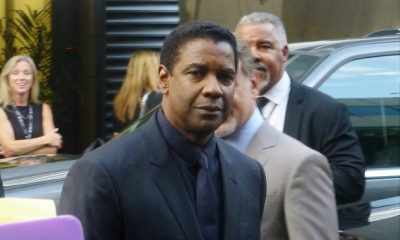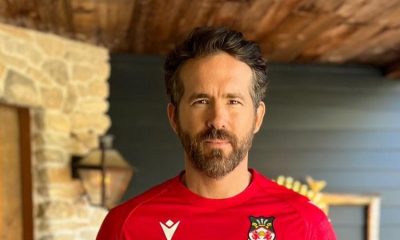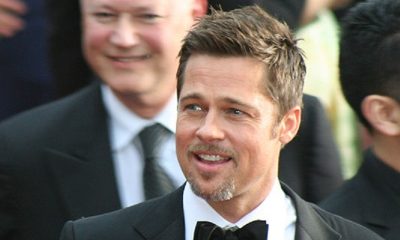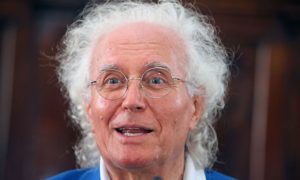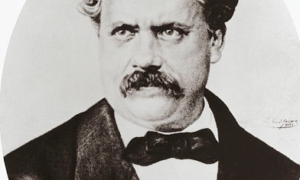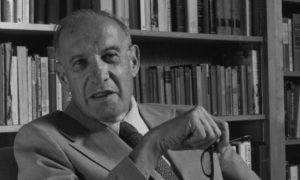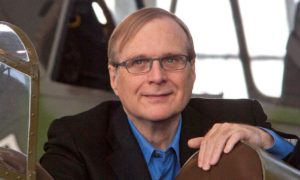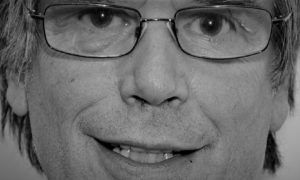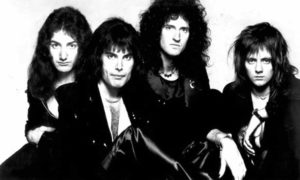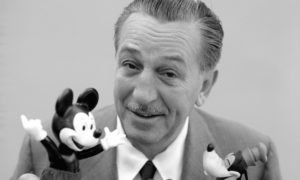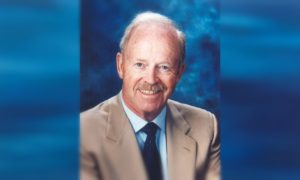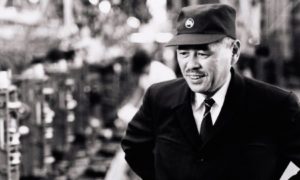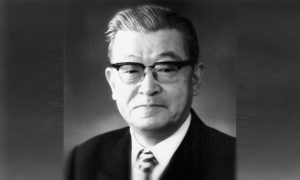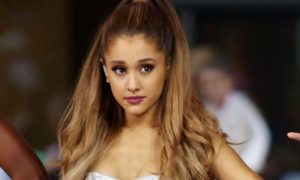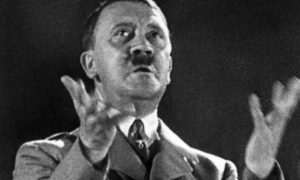Artist
Diego Rivera

Diego Rivera Biography
Diego Rivera Barrientos was a Mexican muralist of communist ideology, renowned for modeling works of much social content in public buildings. He was born on December 8, 1886, in Guanajuato Mexico, son of Diego Rivera and María del Pilar Barrientos. In the year 1896, he began to receive night classes at the Academy of San Carlos in the Mexican capital, where he met the famous landscape painter José María Velasco.
For the year 1905, he received a pension from the Secretary of Education, Justo Sierra, and two years later another from the then governor of Veracruz, Teodoro A. Dehesa Méndez, Economic resources that opened the way for him to travel to Spain to do studies of works such as of Goya, El Greco and Brueghel and enter the workshop of Eduardo Chicharro, one of the most outstanding portraitists in Madrid at that time. Unlike José Clemente Orozco, who was an artist affiliated with the Constitutionalist Army, Diego Rivera did not directly participate in the political and military conflict of the Mexican Revolution, as he is said to have been.
He alternated his residence in countries such as Mexico, Ecuador, Spain, Bolivia, Argentina, and France, until half of the year 1916; in France, he managed to have the first contacts with the artists of Montparnasse. In 1917, motivated by the paintings of Paul Cézanne, he entered post-impressionism, managing to capture the attention with his finished and vivid colors, above other muralists.
In 1920, with the help of Alberto Pani, Mexico’s ambassador to France at that time, Diego Rivera left the country and moved to Italy, where he began the study of Renaissance art. A year later, he returned to Mexico where he participated in the revival of mural painting that other artists had initiated.
He began painting his first mural in January 1922 at the Simón Bolívar amphitheater of the National Preparatory School, which he called “La Creación.” For that creation, he was assisted by Carlos Merida, Jean Charlot, Amado de la Cueva, and Xavier Guerrero. The main theme of the mural was focused on the formation of the Mexican race. The painting of Diego Rivera began to become a factor of influence for the Mexican and Latin American Mural Movement.
In September 1922 he started the fresco at the Secretary of Public Education and became the co-founder of the Union of Painters, Sculptors and Revolutionary Graphic Artists. In that same year, he joined the Mexican Communist Party, which became one of the great influential factors in his work. He received permits to start with the paintings and murals of the Palacio de Cortés in Cuernavaca and the National School of Agriculture, as well as in the National Palace of Mexico City, where between 1929 and 1935 he created a narrative cycle on the history of the country from the time of the Aztecs until the twentieth century.
Between August of 1929 and May of 1930, Diego Rivera was director of the Central School of Plastic Arts, until a student movement organized against him made him resign his position.
TRAJECTORY ABROAD AND RETURN TO MEXICO
For the year 1927 Diego Rivera traveled to Moscow, to fulfill the invitation to the celebration of the first ten years of the October Revolution in the Soviet Union.
After his divorce with Guadalupe Marín in 1928, he became engaged to the painter Frida Kahlo in the year 1929; In the same year of his engagement with Frida, he was expelled from the Mexican Communist Party. For the year 1930, was invited to the United States to realize several works.
In 1933, he was hired by Nelson Rockefeller to paint a mural in the lobby of the RCA building in New York City, which was the main building of a group of buildings called Rockefeller Center. He called this work Man at the crossroads or The controlling man of the universe. After finishing the mural, in which he included an image of Lenin Revolutionary, Rockefeller, he saw the portrait as a personal insult and ordered that Rivera’s work to be destroyed.
After traveling abroad, he returned to Mexico in 1934, where he painted the mural of El hombre en el Cruce de Caminos, on the third floor of the Palace of Fine Arts in Mexico. In 1943 he was a founding member of El Colegio Nacional.
For the year 1946, he painted his work called Dream of a Sunday Afternoon in the Alameda Central of the Hotel del Prado in Mexico City. He was also part of the commission of Mural Painting of the National Institute of Fine Arts with José Clemente Orozco and David Alfaro Siqueiros.
In 1950 he illustrated the work “Canto General” by Pablo Neruda and was the winner of the National Prize of Science and Arts of Mexico. Two years later, he made the mural called “The University, the Mexican family, peace and youth sports.”
For the year 1953 Diego Rivera created one of his most important works called “Water, Origin of Life” which is found at the Teatro de Los Insurgentes in Mexico City, the mural has a great historical significance since each of the images represents part of the history of Mexico. Diego Rivera died on November 24, 1957, in Mexico City; his remains were placed in the Rotunda of the Illustrious Persons.
WORKS
- Of a Sunday Afternoon in the Alameda Central.
- Ceremonies and celebrations of the Totonaca culture.
- Fragment of the Man controller of the universe.
- Mural of the National Palace.
- “The man controlling the universe”
TRIBUTES
In honor of their work, the street adjacent to the Museo Casa Estudio Diego Rivera and Frida Kahlo is named after the artist. Since 2010, Banco de México, as a tribute, presents the image of Diego Rivera on the 500 pesos bills. On December 8, 2011, Google dedicated one to him in honor of the 125th anniversary of his birth. In 1986, the Diego Rivera Mural Museum was created, with the aim of housing the dream mural of a Sunday afternoon in the Alameda Central to Diego Rivera and Frida Kahlo, the house where they lived was established as Museo Casa Estudio Diego Rivera and Frida Kahlo.

Art
Fernando Botero
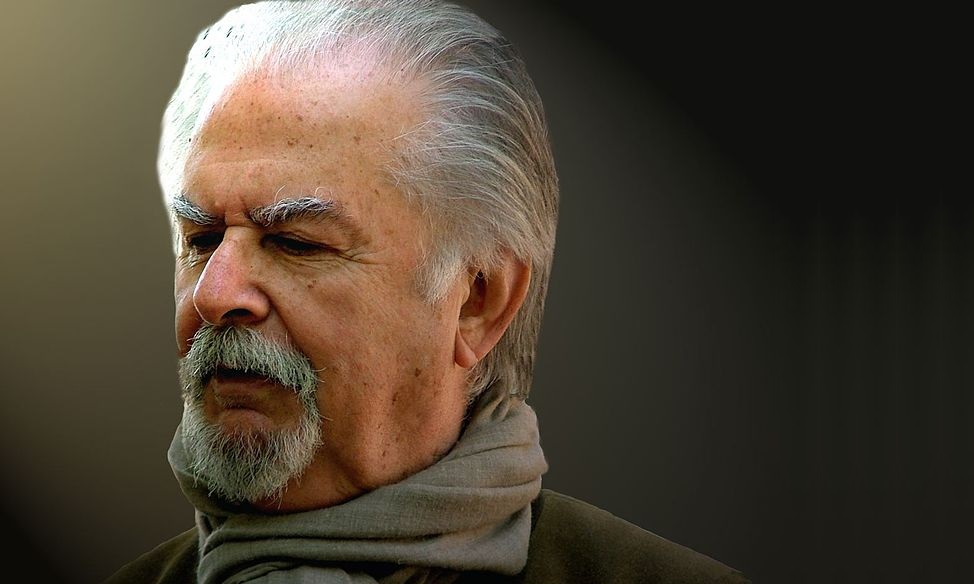
Fernando Botero Biography
Fernando Botero Angulo (April 19, 1932 – September 15, 2023) was a sculptor, painter, muralist, and draftsman, hailing from Medellín, Antioquia, Colombia. He was a Colombian artist known and celebrated for infusing a substantial volume to human and animal figures in his works.
Early Years and Beginnings
Fernando Botero was born into an affluent Paisa family, composed of his parents, David Botero and Flora Angulo, along with his older brother Juan David, who was four years his senior, and his younger brother, Rodrigo, who would be born four years after Fernando, in the same year that their father passed away. In 1938, he enrolled in primary school at the Ateneo Antioqueño and later entered the Bolivariana to continue his high school education. However, he was expelled from the institution due to an article he published in the newspaper El Colombiano about Picasso, as well as his drawings that were considered obscene. As a result, he graduated from high school at the Liceo of the University of Antioquia in 1950.
In parallel to his studies, Fernando attended a bullfighting school in La Macarena at the request of one of his uncles. However, due to an issue related to bullfighting, Botero left the bullring and embarked on a journey into painting. In 1948, he held his first exhibition in Medellín. Two years later, he traveled to Bogotá where he had two more exhibitions and had the opportunity to meet some intellectuals of the time. He then stayed at Isolina García’s boarding house in Tolú, which he paid for by painting a mural. Once again in Bogotá, he won the second prize at the IX National Artists Salon with his oil painting “Facing the Sea”.
“Ephemeral art is a lesser form of expression that cannot be compared to the concept of art conceived with the desire for perpetuity. What many people fail to understand is that Picasso is a traditional artist”- Fernando Botero
Due to the prize from the IX Salon and the sale of several of his works, Fernando Botero traveled to Spain in 1952 to enroll at the Royal Academy of Fine Arts of San Fernando in Madrid. There, he lived by selling drawings and paintings in the vicinity of the Prado Museum. In 1953, he went to Paris with filmmaker Ricardo Irrigarri, and later, they both traveled to Florence. Here, he entered the Academy of San Marco, where he was heavily influenced by Renaissance painters such as Piero della Francesca, Titian, and Paolo Uccello.
Career and Personal Life
In 1955, Botero returned to Colombia to hold an exhibition featuring several of his works created during his time in Europe, but it was met with a lukewarm reception from the public.
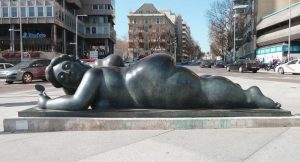
Woman With a Mirror / Foto:Luis García (Zaqarbal) / Attribution-ShareAlike 3.0 Spain (CC BY-SA 3.0 ES)
In 1956, he married Gloria Zea, with whom he would later have three children: Fernando, Juan Carlos, and Lina. The couple traveled to Mexico City, where Fernando Botero was eager to see the works of Mexican muralists, but this experience left him disillusioned. Consequently, he began searching for his own artistic style, drawing influence from both the Mexican artist Rufino Tamayo and the Colombian artist Alejandro Obregón. In this quest, he started experimenting with volume, initially in still lifes, and gradually extending this approach to other elements.
In 1957, he successfully exhibited in New York, showcasing his new artistic sensibility. The following year, he returned to Bogotá, where he was appointed as a professor at the School of Fine Arts at the National University of Colombia. He presented his work “La Camera Degli Sposi” at the X Colombian Artists Salon, winning the first prize and becoming the country’s most prominent painter. This piece sparked some controversy as it was initially censored for being almost a parody of Andrea Mantegna’s “La Cámara de los Esposos”. However, it was later reinstated in the exhibition on the advice of Marta Traba. Subsequently, Fernando Botero exhibited his works in various spaces in the United States, where a businessman from Chicago purchased “La Camera Degli Sposi”.
“Fernando Botero and his works are the finest ambassadors of our country in this land of navigators and discoverers, of poets and fado singers”- Juan Manuel Santos
In 1960, Botero separated from Gloria Zea and traveled to New York. He led a modest life here as the New York art scene was primarily inclined towards abstract expressionism. Consequently, Botero was influenced by artists like Pollock, which led him to experiment with color, brushwork, and format, to the point of nearly abandoning his distinctive style characterized by the manipulation of volume. Aware of this, Botero returned to his usual style of flat colors and figurative representations.
Starting in 1962, he began a series of exhibitions in both Europe and the United States, as well as in Colombia. By 1970, the year his son Pedro was born to his second wife, Cecilia Zambrano, Fernando Botero had already become the world’s most sought-after sculptor. However, in 1974, his son Pedro tragically died in a traffic accident, leading to his second divorce and leaving significant marks on his artistic endeavors.
In 1978, the Colombian painter married Sophia Vari, a renowned Greek artist with whom he shared a significant part of his life, until sadly, she passed away in May 2023.
Since 1983, Fernando Botero has been exhibiting his works and donating them to various cities around the world. As a result, we can find his pieces in the streets of Medellín, Barcelona, Oviedo, Singapore, and Madrid, among others. In 2008, the Autonomous University of Nuevo León in Mexico conferred upon him an honorary Doctorate.
Death
Renowned Colombian artist, Fernando Botero, died on September 15, 2023, in Monaco at the age of 91 due to pneumonia. His artistic legacy will endure forever. In his hometown, seven days of mourning were declared.

Pedrito a Caballo, Fernando Botero (1975).
Top 10 Famous works by Fernando Botero
Some of the most recognized works by Colombian painter and sculptor Fernando Botero:
- “Pedrito on Horseback” / “Pedrito a Caballo” (1974): This is an oil painting on canvas measuring 194.5 cm x 150.5 cm. For Botero, this work is his masterpiece and a refuge during a personal tragedy. The child depicted is Pedro, his son from his second marriage, who tragically passed away in an accident when he was young.
- “Mona Lisa at 12 Years Old” / “Mona lisa a los 12 años” (1978): This piece stands out as a unique version of Leonardo da Vinci’s famous painting, the Mona Lisa. Painted in oil on canvas and measuring 183 cm x 166 cm, Botero incorporates his characteristic style of voluptuous and rounded figures into this work, which has become one of his most distinctive pieces.
- “Woman’s Torso” / “Torso de Mujer” (1986): It is a majestic bronze sculpture that rises to an impressive height of approximately 2.48 meters. It is often affectionately referred to as “La Gorda” (“The Fat One”). This artwork finds its home in Parque de Berrío, located in the captivating city of Medellín.
- “Woman with Mirror” / “Mujer con Espejo” (1987): An imposing bronze sculpture weighing 1000 kg. It is located in Plaza de Colón, in the heart of Madrid, Spain. The artwork captivates the gaze with the portrayal of a woman peacefully lying face down on the ground, holding a mirror in her hands. Her expression reflects deep introspection and enigmatic melancholy.
- “The Orchestra” / “La Orquesta” (1991): In this oil on canvas artwork, measuring 200 cm x 172 cm, Botero presents a band of musicians with a singer, all immersed in a spirit of celebration. The artist aims to convey a sense of harmony and joy through his portrayal.
- “Woman Smoking” / “Mujer Fumando” (1994): It is a creation executed in watercolor, spanning dimensions of 122 cm x 99 cm. In this work, Maestro Botero skillfully captures the essence of a woman elegantly holding a cigarette between her fingers. His meticulous focus on voluptuous forms, posture, and the serene expression of the figure masterfully combine to emphasize the sensuality and profound intimacy of the moment captured in the artwork.
- “Man on Horseback” / “Hombre a Caballo” (1996): This bronze sculpture is one of the most iconic works in the artist’s career. It depicts a rider in a majestic and proud posture. Over the years, this imposing work has been exhibited in multiple cities around the world, solidifying its place as a prominent piece in the sculptor’s body of work.
- “The Horse” / “El Caballo” (1997): This iconic sculpture showcases a horse of majestic presence and a distinctive rounded form, sculpted in bronze and measuring approximately 3 meters in height. This masterpiece reflects Botero’s profound passion for horses while also serving as a powerful representation of the mythical Trojan Horse.
- “The Death of Pablo Escobar” / “La muerte de Pablo Escobar” (1999): This artwork, created using the oil on canvas technique, has dimensions of 58 cm x 38 cm. While not considered a masterpiece, this artistic piece represents one of the most significant moments in Colombia’s history. Fernando Botero captures, in his distinctive style, the moment of the death of the drug lord Pablo Escobar, addressing issues related to violence and criminality that have marked the country’s history.
An interesting detail is that, although Pablo Escobar admired Fernando Botero’s art, it cannot be said that the admiration was mutual. The painter created two works depicting the death of the drug trafficker. - “Boterosutra Series” / “Serie Boterosutra” (2011): This work by Botero is part of an erotic art collection called Boterosutra, marking a milestone in the history of Colombian art as the first artistic representation of sexual intimacy between lovers. This series comprises around 70 small-sized pieces created using various techniques, including colored drawings, watercolors, brushstrokes, and also black and white, all of which constitute one of the most contemporary works by the painter.
Actors
Ryan Reynolds
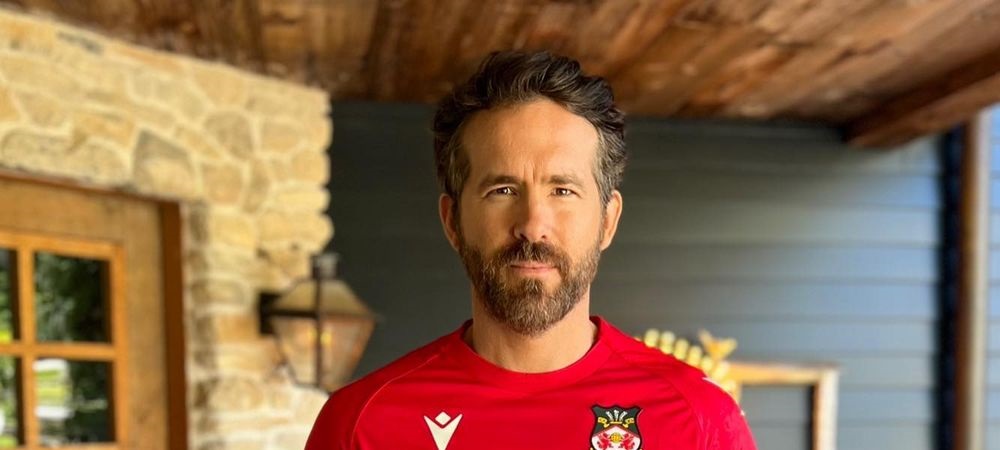
Biography of Ryan Reynolds
Ryan Rodney Reynolds was born on October 23, 1976 in Vancouver, Canada, and he is a well-known actor. When Ryan was born, his mother, Tammy, was a student and a salesperson, while his father, Jim, worked in wholesale food sales and also excelled as a semi-professional boxer. In addition, Ryan has three older siblings.
He studied in his hometown of Vancouver until 1994 when he decided to join a theater group as an extracurricular activity while attending Kwantlen College. However, his passion for acting became a vocation, and Ryan dropped out of college to devote all his time and energy to his acting career.
Debut as an actor
He quickly landed small roles in successful and memorable TV series such as “Sabrina the Teenage Witch” and “The X-Files”. In 1998, his big break came with the series “Two Guys, a Girl and a Pizza Place”, which ran until 2001 and catapulted him to fame. The show became very popular thanks to its great comedic content, an area where Reynolds demonstrated perfect skill, but this was not the first time that Ryan had made a name for himself in a Hollywood comedy, as he had already been in “Life During Wartime” in 1997.
Films
After working in several minor jobs, Ryan got his first major role as a protagonist in the crazy “Van Wilder – Animal Party”, where he played a college party organizer. The success of the film opened doors for him to work alongside Michael Douglas in “Till Death Do Us Part”, support Wesley Snipes in “Blade Trinity” or star in the horror movie “The Amityville Horror”. However, at this stage of his career, Ryan stood out mainly as a protagonist in comedies such as “Just Friends”, “Waiting” and “Harold & Kumar Go to White Castle”. This led him to want to leave his comedic side behind, getting involved in different projects such as the thriller “Smokin’ Aces”, the independent film “Adventureland” and the action film “X-Men Origins: Wolverine”. Later on, he also participated in romantic films such as “The Proposal” and “Definitely, Maybe”. However, recognition of his acting ability did not come until Ryan was nominated for a Goya Award for his demanding role in “Buried”. It is worth noting that he also brought to life the comic book hero “Green Lantern” and the renowned “Deadpool”.
Contracts, curiosities
Prestigious brands like Hugo Boss have not been oblivious to Ryan Reynolds’ popularity, charisma, and good looks, offering him contracts to be the face of one of their fragrances: Boss Bottled Night, a fragrance that, through great advertising, managed to convey an irresistible seductive effect.
Two curiosities can be highlighted from his work: first, the nearly 10 kilos of solid muscle he gained thanks to rigorous physical training to bring Hannibal King to life in “Blade: Trinity”; and second, his appearance on the animated TV series Zeroman, in which he lent his voice to the character Ty Cheese. In addition, like many Hollywood stars, Ryan Reynolds has an eccentricity outside the world of entertainment: a great passion for motorcycles, of which he owns three collector’s items, one of which was designed exclusively for him and is none other than a Harley Davidson.
Romantic relationships
Regarding his personal life, Ryan Reynolds was in a romantic relationship with singer Alanis Morissette from 2002 to 2007. The couple got engaged in 2004, but in July 2006, People magazine reported that they had separated, although neither of them officially confirmed the news. Shortly after, in February 2007, they decided to end their engagement by mutual agreement. In May 2008, Reynolds announced his engagement to actress Scarlett Johansson, and they got married on September 27 of the same year. However, in December 2010, the couple announced in a statement to People magazine that they had decided to end their marriage.
So, on September 9, 2012, he married the actress Blake Lively in Mount Pleasant, South Carolina. In October 2014, they announced that they were expecting their first child, and in December of that same year, Ryan Reynolds and his wife Blake Lively became parents with the birth of their daughter: Ines. Later, on April 14, 2016, his wife’s second pregnancy was confirmed, and on September 30, 2016, he became a father for the second time to a boy named James.
Artist
Tom Hanks
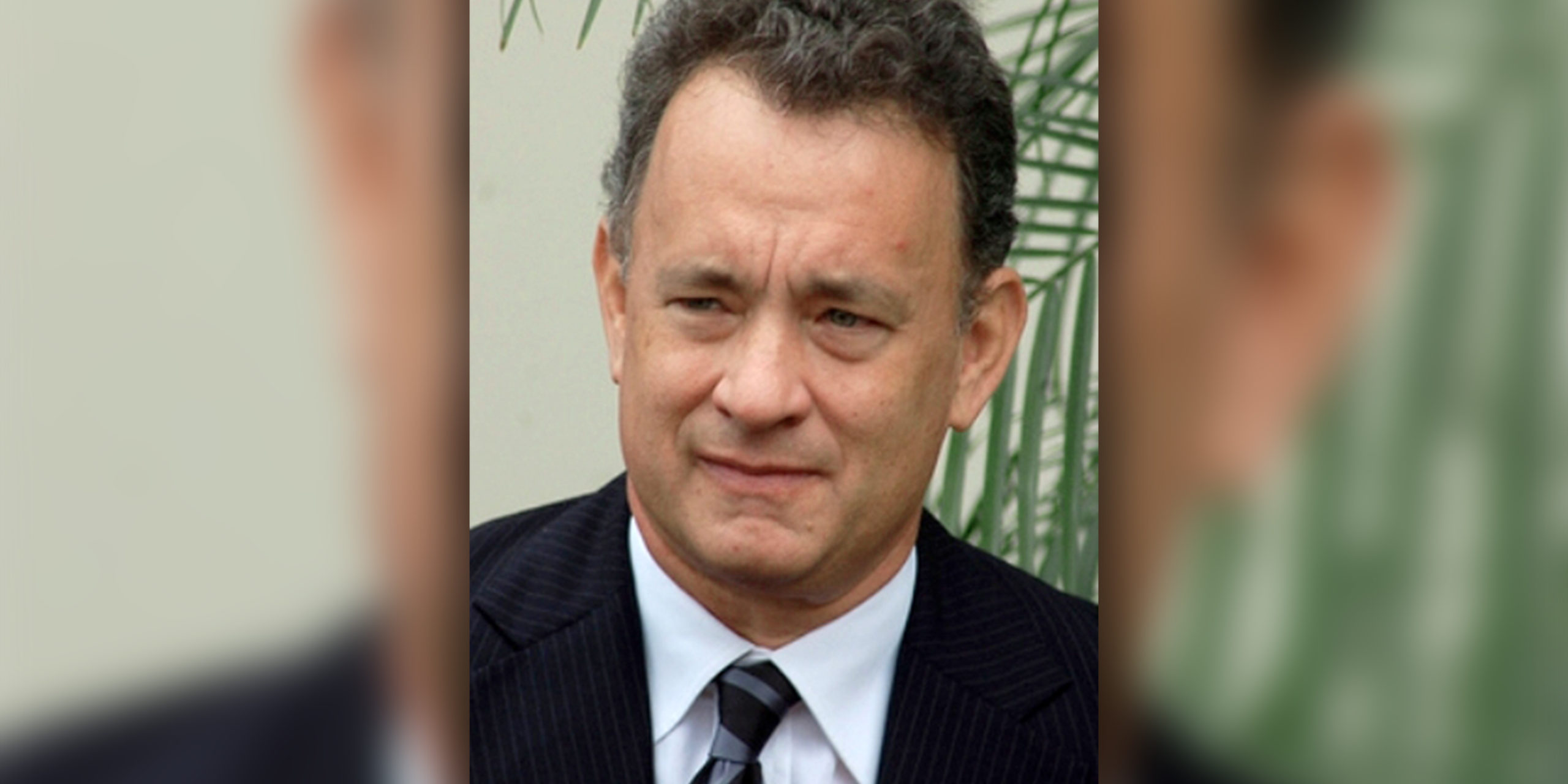
Biography of Tom Hanks
Thomas Jeffrey Hanks, born July 9, 1956 in Concord, California, United States, is an actor known as Tom Hanks. Hanks was raised by his father Amos Mefford Hanks, who worked as a cook of English food, and his mother Janet Marylyn, a nurse. He was raised with the values of the Catholic and Mormon religion. During his time at Skyline High School in Oakland, he attended theater classes with his best friend. During his adolescence, Hanks demonstrated his acting talent and won the Best Theater Actor award at his institute. Later, he enrolled in Chabot College in Hayward, California and two years later did a exchange at California State University, Sacramento.
1981 – Debut as an actor
In 1979, the Hanks family moved to New York, which gave Tom the opportunity to debut as a supporting actor in the horror film “Sabe que estás sola” in 1981. Two years later, he landed a lead role in another film. Additionally, he did his first television work in the comedy series “Bosom Buddies.” Later, he decided to move to Los Angeles to participate in “Despedida de soltero” in 1984, although the film was not very successful, it allowed him to be discovered by Ron Howard, who later contacted him to offer a role in “Splash” in 1984.
Since then, Tom starred in several comedy films such as “Amigos del alma” (1980), “Esta casa es una ruina” (1986), “Big” (1988), “No matarás… al vecino” (1989), “Socios y sabuesos” (1989), and “Joe contra el volcán” (1990). His father was always very important in his career, constantly encouraging him to keep fighting for his dream. On several occasions, he helped him to get small roles. He also supported his participation in the Great Lakes Shakespeare Festival in Cleveland, Ohio. Tom had already made some appearances in series like “Vacaciones en el mar”, “Happy Days”, “Taxi”, or “Family Ties”.
“The King of Comedy”
After a small role in the horror film “He Knows You’re Alone” (1980) directed by Armand Mastroianni, he starred in several comedies that typecast him in comedic roles. His charming personality and natural talent contributed to his growing popularity. Definitely his consecration came in the eighties, he was cataloged as the king of comedy. Thanks to “Big” (1988), he achieved great success for his performance, receiving the Los Angeles Critics Award and an Oscar nomination. Although he had a bit of a downfall after that, he regained momentum as a disillusioned former baseball pitcher who trains a women’s team in “A League of Their Own” (1992).
Tom considered it appropriate to change direction and tackle other stories, to move away from comedy a little. So, he eagerly sought more intense themes where he could showcase his versatility. With his work in “The Bonfire of the Vanities” (1989), directed by Brian de Palma, he attempted to take the first step to break away from light comedies, but the result was not as expected. However, his career took off again with his portrayal of an AIDS-stricken lawyer in “Philadelphia” (1992), directed by Jonathan Demme, an intense character that was quite a challenge. His effort was rewarded with an Oscar. He renewed his commercial success with “Sleepless in Seattle” (1993), directed by Nora Ephron, where he teamed up with Meg Ryan, and worked with her again in “You’ve Got Mail” (1998).
Some of his most acclaimed performances
In the mid-90s, Hanks established himself as one of Hollywood’s brightest stars. It’s worth mentioning that his career enjoyed significant success. For his role in Robert Zemeckis’ “Forrest Gump” (1994), this has been one of the most striking films of the decade, he was again deserving of an Oscar, a prize that increased, turning him into one of the best-paid actors in Hollywood. With the comedy “The Wonders” (1996), he made his directorial debut.
Later, he did the same in the field of production with the TV series “From the Earth to the Moon,” a work that took him several years. Hanks had the lead role in the feature film “Saving Private Ryan” (1997), directed by Steven Spielberg, with this role he was nominated for the Academy Award, although the film received five Oscars. In 2000, he worked with Robert Zemeckis again in the film “Cast Away,” a film in which his solo performance was praised, for which he received an Oscar nomination.
Between 2003 and 2004, he repeated his collaboration with Spielberg in “Catch Me If You Can” and also in “The Terminal.” In 2006, he starred in the hit film “The Da Vinci Code,” the cinematic version of Dan Brown’s controversial work. Starting in 2014, Hanks’ films have grossed over 4.2 billion in countries such as the United States and Canada, and over 8.4 billion in the rest of the world, he is definitely an actor who ensures great success for films. His fame is such that the asteroid (12818) Tomhanks bears his name.
Marriages, children.
The actor has had several marriages throughout his life. His first marriage was to Samantha Lewes in 1978, from which two children were born: Colin Hanks in 1977 and Elisabeth Ann in 1982. However, the couple divorced in 1985. Later, in 1988, he married actress and producer Rita Wilson, with whom he had two additional children: Chester Marlon in 1991 and Truman Theodore in 1996. In recent years, the actor has been diagnosed with type 2 diabetes, which requires a strict diet and daily care to maintain his health.
Actors
Marc Anthony
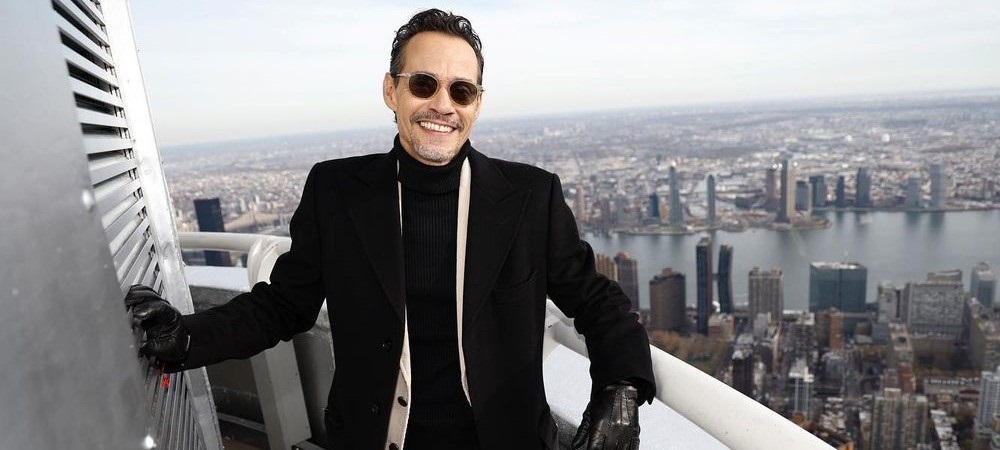
Biography of Marc Anthony
Marc Anthony (born September 16, 1968) is an American salsa singer and actor, born in New York. His real name is Marco Antonio Muñiz Rivera. From a young age, he has been involved in music, growing up with rock and rhythm & blues. His parents, Felipe Muñiz and Guillermina Rivera, discovered his passion and musical ability when he was a child. During his teenage years, to earn money, he began singing at bars and nightclubs, and quickly gained popularity. He was contacted by one of the members of the Latin Rascals group, and their producer Louie Vega invited him to record several albums with the Atlantic Records label.
Beginnings as a singer
One of Marc Anthony’s most successful musical products was the album “Rebel”, which achieved some success on the disco music charts. In 1992, his career in the salsa world took off when the famous Tito Puente took him as an opening act for a concert at Madison Square Garden. A year later, he recorded a salsa version of a song by Juan Gabriel that received excellent reviews and great popularity in the musical circles of New York. Soon, Marc Anthony appeared in several television productions and began to receive offers for concerts. After a few years, he was recognized as the new “king of salsa”. During the 1990s, his lyrics occupied the top position in Latin America and also in the United States.
The new “musical phenomenon”
Marc Anthony became a massively successful musical phenomenon, comparable to the success of Héctor Lavoe. At the same time, he continued to develop his acting career, appearing in films such as “Bringing out the Dead” directed by Martin Scorsese; “Big Night” directed by Stanley Tucci; “Hackers,” and “The Capeman,” a Broadway musical directed by singer and songwriter Paul Simon. He also performed the main theme of the soundtrack of “The Mask of Zorro” (1998), in which Antonio Banderas was the lead actor.
Third salsa album “Against the Stream”
That same year, he worked on the production of his third salsa album: “Contra la Corriente,” undoubtedly many salsa critics and aficionados affirm that it was the best album of his career, for which he received a Grammy for Best Latin-Tropical Album. In 1999, he released the album “Marc Anthony” to the market, this album undoubtedly demonstrates a new stage in his musical career, as it combined salsa with pop and also featured songs in English, in order to reach and conquer the Anglo-Saxon audience and market.
The first single, “I Need to Know,” put him in the top positions of the North American charts: it remained in the Top 10 of the Billboard for eleven weeks and eight more weeks in the Top 40. He also released the Spanish version, titled “Dímelo.” With this song, he won the Grammy for Best Latin Song of the Year and was number one on the Latin Billboard chart. He quickly released the second single, “You Sang to Me,” repeating the success of the previous one and selling over two million copies of the album.
Starting the new millennium, he released a greatest hits salsa album titled “Desde el principio.” After that, Marc Anthony went on a extensive tour that took him through the United States. All magazines and press talked about his triumphant concert at Madison Square Garden. Then he was in Canada and Central America. At that time, Marc Anthony received the admiration of his fans when he helped with his charitable work for the victims of Hurricane George, in sum, he founded a foundation that bears his name.
International tours
In 2011, he started the Dos Mundos Tour, with the company of Alejandro Fernández, a concert across Latin America. The following year, he was in Colombia at the Manacacías Summer Festival, many people from different parts of the country traveled to attend his concert. He had a significant participation in the 53rd International Song Festival of Viña del Mar, Chile, where he sang the song “¿Y cómo es él?” from his album “Iconos”. He received the highest distinction.
On March 3, 2012, Marc returned to Uruguay after 17 years and gave his performance at the Charrúa Stadium in Montevideo with an attendance of 25,000 spectators. In the GIGANT3S TOUR, he performed in several North American cities alongside Chayanne and Marco Antonio Solís. In 2013, he released his album 3.0. In 2014, he was the big winner of four of the five awards for which he was nominated at the Premios Lo Nuestro. Additionally, his career was recognized as one of the most successful Latin music artists. In 2016, he released a song called “Deja que te bese” with the collaboration of Spanish singer Alejandro Sanz, the song has over 50 million views on Youtube.
Marriages, children.
In September 2016, he carried out his “Marc Anthony Live” tour which included 5 dates at Radio City Music Hall. His private life has been somewhat controversial and has been exposed to various comments. He had his first daughter in 1994, Arianna Rosado-Muñiz, a product of his relationship with a former police officer from New York. In 2000 he married for the first time to Dayanara Torres, with whom he had two children. He later helped Jennifer Lopez in the production of the song “Sway” for the soundtrack of the movie Shall We Dance?. They then fell in love and after only one month of relationship, they got engaged in March 2004.
The couple had twins and Jennifer sold the exclusive photos of the children to People Magazine. However, after a few years, the couple decided to end their marriage on April 9, 2012. It is said that everything started when Jennifer Lopez met dancer Casper Smart and began a relationship with him two months after her separation from Marc. Later, Marc started a relationship with Venezuelan model Shannon de Lima, whom he married in 2014. Despite this, his relationship with Jennifer, the mother of his children, is harmonious, and he even participated in her song “Olvídame y pega la vuelta” in 2016. Two years earlier, the Puerto Rican singer made an impact with the hit song “Flor Pálida”.
On January 28, 2023, he married Nadia Ferreira in an incredible wedding surrounded by stars from film, music, and sports. The ceremony took place at the Perez Art Museum in Miami, with David Beckham as the best man.
Ver esta publicación en Instagram
Artist
Paul McCartney
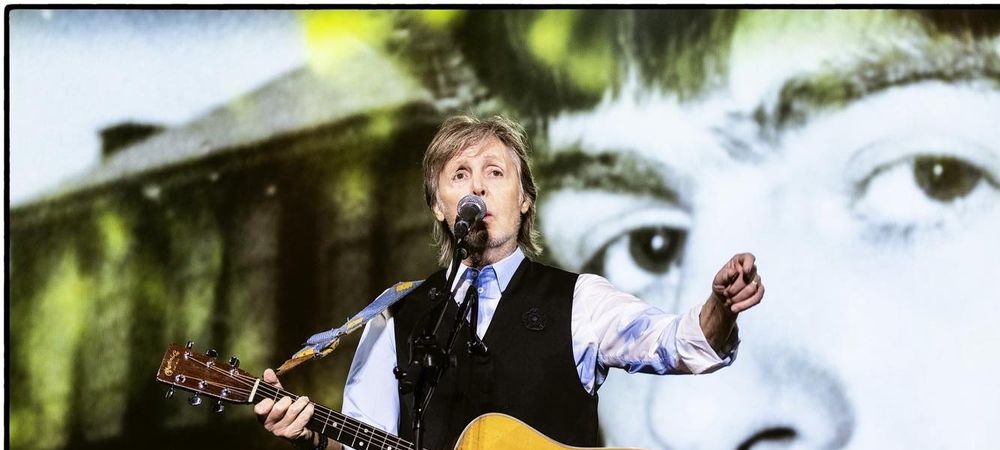
Biography of Paul McCartney
Paul McCartney (born June 18, 1942) is a singer. He was born in Liverpool, England. His mother, Mary Patricia, was a nurse, while his father, James McCartney, was a volunteer firefighter. During Paul’s birth, his father was not present as he was fighting in the Battle of England during World War II. Paul grew up in a religious and strict environment, with his mother Catholic and his father Protestant, but later became agnostic. After returning from the war, his father devoted himself to selling cleaning products and, in his free time, played in bars.
Death of his mother
That’s why his son developed a deep love for music. He stood out in school for his intelligence and discipline and studied at Liverpool Institute secondary school, a good free secondary school. In 1954, he met George Harrison, with whom he quickly formed a strong friendship. At the time, McCartney’s mother was the one who kept the household and for work reasons they moved to Allerton, where they lived until 1964. On October 31, 1956, when McCartney was 14 years old, his mother died from a stroke.
After his mother’s death, McCartney was devastated. It took some time for him to return to normal. His father saw music as a refuge to help his son feel better, so he took him to listen to the Jim Mac’s Jazz Band, where his father played trumpet or piano. He also gave him a trumpet, but when rock and roll became popular, he chose an acoustic guitar. The first song he composed was “I Lost My Little Girl” on that guitar, a Zenith. He also composed “When I’m Sixty-Four” on the home piano.
1957 – Met John Lennon
He met Lennon on July 6th, 1957. McCartney joined The Quarrymen, a school band led by Lennon, in 1958 as the lead guitarist. The band mixed rock and roll and skiffle, a popular music style, with jazz and blues. After several name changes, the band decided to call themselves The Beatles in August 1960 and recruited drummer Pete Best for their move to Hamburg. In 1961, one of its members, Sutcliffe, left the band and McCartney was forced to take over as bassist. They recorded as a backing band for English singer Tony Sheridan on the single My Bonnie.
1963 – “Beatlemania”
They managed to attract the attention of Brian Epstein, who became their manager in January 1962 and a key figure in their later success. With their first hit, “Love Me Do” in 1963, the “Beatlemania” began. John Lennon and Paul wrote a large number of songs together, but later their egos collided and they preferred to write separately. In 1970, The Beatles disbanded. But Paul continued his successful career with songs that reached number one. He recorded his first solo LP, “McCartney”, with songs very different from those that Lennon would write, with commercial melodies for varied tastes.
1980 – Paul McCartney Guinness Records
In 1980, he entered the Guinness Book of Records as the highest-selling songwriter in the world. His theme Yesterday, one of the most celebrated by The Beatles, has around 2,500 versions in the most diverse musical styles. Some of his solo hits are: Uncle Albert/Admiral Halsey, Live and Let Die for the James Bond film received the Oscar for best musical theme; Coming Up from his solo album Paul McCartney II. He joined George Martin and Ringo Starr in 1982 for the recording of Tug of War. On Press to play, his next album, was recorded with Eric Stewart.
Awards, arrest, record.
Winner of 18 Grammy Awards, including two Lifetime Achievement Grammy Awards (one with the Beatles and another as a solo artist). He is a vegetarian and an animal rights advocate. He was arrested for marijuana possession in Tokyo in 1980 and was briefly in jail. He participated in the “Live Aid” concert against hunger in Ethiopia in 1985. In 1990, he achieved the record for the largest attendance at a concert with 184,000 people in Rio de Janeiro. Since 1997 he is Sir Paul McCartney, invested as a knight by Queen Elizabeth II.
2013 – Other awards, marriages.
On February 10, 2013, he received a Grammy for “Best Traditional Pop Album” for his album “Kisses On The Bottom”. Later, he received a special award from PRS for Music in commemoration of the 50th anniversary of the composition of his most famous song, “Yesterday“. These songs, as well as “And I Love Her,” “You Will Not See Me,” and “I’m Looking Through You,” were written inspired by his relationship with British actress Jane Asher. After five years of engagement, the couple broke up due to his infidelity with Francie Schwartz. He married Linda Eastman on March 12, 1969, and together they formed the musical group Wings after the dissolution of the Beatles. In 1999, he presented his collection of poems entitled “Blackbird Singing: Poems and Lyrics (1965-1999)”. After the death of his wife, McCartney experienced deep sadness.
In 2002, Paul McCartney married former model Heather Mills in an Irish castle. After a long legal battle in the London Supreme Court, in 2008 Mills was authorized to collect one fifth of the 250 million dollars she had demanded from McCartney for their four-year marriage. In 2011, McCartney married Nancy Shevell in a civil ceremony in London on October 9th of that year.
Relevant aspects of his life and musical career
- With 60 gold records and the sale of over 100 million albums and singles as a solo artist and with The Beatles, McCartney is recognized as one of the most successful composers and artists of all time.
- As a solo artist in 1999 and as a member of The Beatles in 1988, he has been inducted into the Rock and Roll Hall of Fame twice.
- As a solo artist and with The Beatles, he has been recognized with twenty-one Grammy Awards.
- 32 of the songs that McCartney has written or co-written have reached number one on the Billboard Hot 100.
- As of 2014, he had sold over 15 million certified units by the RIAA in the United States.
- In 1997, McCartney was elevated to the rank of knight for his services to music.
- In 1965, McCartney, Lennon, Harrison and Starr were named members of the Order of the British Empire.
- He has been married three times and is the father of five children.
- He has participated in projects to help international charities related to issues such as animal rights, seal hunting, landmine cleaning, vegetarianism, poverty and musical education.
- He ranks 11th on Rolling Stone’s list of 100 Greatest Singers.
- He ranks first on Rolling Stone’s list of 100 Greatest Artists as a member of The Beatles.
- He ranks third on Rolling Stone’s list of 100 Greatest Bassists.
- Only surpassed by Bob Dylan, he ranks second on Rolling Stone’s list of 100 Greatest Songwriters.






